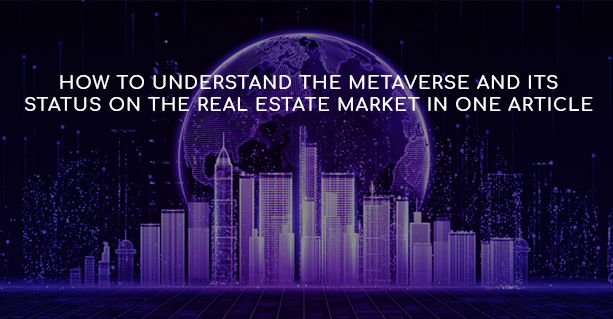The metaverse has become one of the hottest topics in proptech. Nevertheless, it is not a new phenomenon. The rise of the virtual gaming industry continues to grow faster than ever before, and there is no secret how popular these metaverse games have become. For instance, Fortnite, an online video game that allows players to create their own avatar, worlds and battle arenas, saw the rise of registered users jump from 1 million to 350 million from August 2017 to May 2020. However, in such virtual games, the ownership of several virtual goods is restricted to the in-game activity. Yet, the blockchain metaverses overcome these restrictions allowing digital assets or non-fungible tokens (NFTs) , to be traded and recorded on the blockchain.
So, what is the metaverse and why is it important?
The metaverse is an evolution of the internet, social networking platforms, the gaming industry, and social technologies. It allows digital representations of people, space and products to interact with one another. The metaverse is where the real world and the digital world come together, whether it is in a virtual community, an event, or even in the office. What’s more, Jean-Yves Marié, founder at BIM-Y said: “The user is at the centre of the metaverse creation process. He is the most important factor to take into account in terms of design. This is crucial in order to first attract the users and then to keep them inside, to stimulate their curiosity and encourage them to explore.“
According to Statista, the metaverse market in the United States “could have a potential total of consumer expenditure addressable market (TAM) of 8.3 trillion U.S. dollars as of 2022. Real estate (30.4 percent) and home related (8.44 percent) segments will account for the largest share of this expenditure.
In addition to that, another market research, by BrandEssence, shows that the metaverse real estate market is expected to grow by 31.2% CAGR between 2022 and 2028. The exploding popularity of the metaverse real estate market is skyrocketing investment opportunities where investors are willing to pay millions of euros to purchase virtual lands, buildings and stores on different metaverse real estate platforms.
During the Metaverse PropTech Lab and LuxPropTech event, Christophe Hautier, Partner at DAIRE® said: “2022 is the year of awareness, creation and showing the art of the possibilities. The metaverse is all about adding an additional layer to the world of today, which consists of the physical world, the digital world, and now the virtual world, for more experiences, interconnectivity, and identity”. Big players such as Atari, Samsung, PWC, Nike, Adidas, and Gucci, are investing huge amounts of money to buy land in the metaverse. Also, Vincent Barué, associate director at Stonal said “We currently scroll to make purchases on internet, but we will soon be sent directly to a world with a personalised avatar, with virtual shops all around us, to find our friends, and to browse these shops together with a personalised path. This enables the installation of a real storytelling and an immersion to new degrees”. In other words, Vincent also agrees with the technology strategist Ben Thompson has argued that the description of the Metaverse is in fact not far from what the internet already is and does today, however adding to it “a 3D layer”.
So, why are we investing so much in the Metaverse real estate?
Just like states, provinces and cities, the number of lands on the Metaverse are limited, meaning, that unless someone owns a plot of land, nobody else can use that space. Respectively, the value of the land can rise if a lot of people are interested in that piece of land. For example, lands that gather a lot of people will be worth more than others because many brands will like to purchase these lands for their own advertising billboards. No wonder Barbados in the Caribbean region opened its embassy in the Metaverse.
Finally, Morgane Soulier, Founder at Now Futures might have got it right when she said, “Just as in the early 2000s, when many companies thought they could operate without a social media presence, brands in the 2020s will need to start building metaverse teams to help them enter the Web 3.0 era . It’s not a question of should I go, but rather when and how”.

Project Manager
